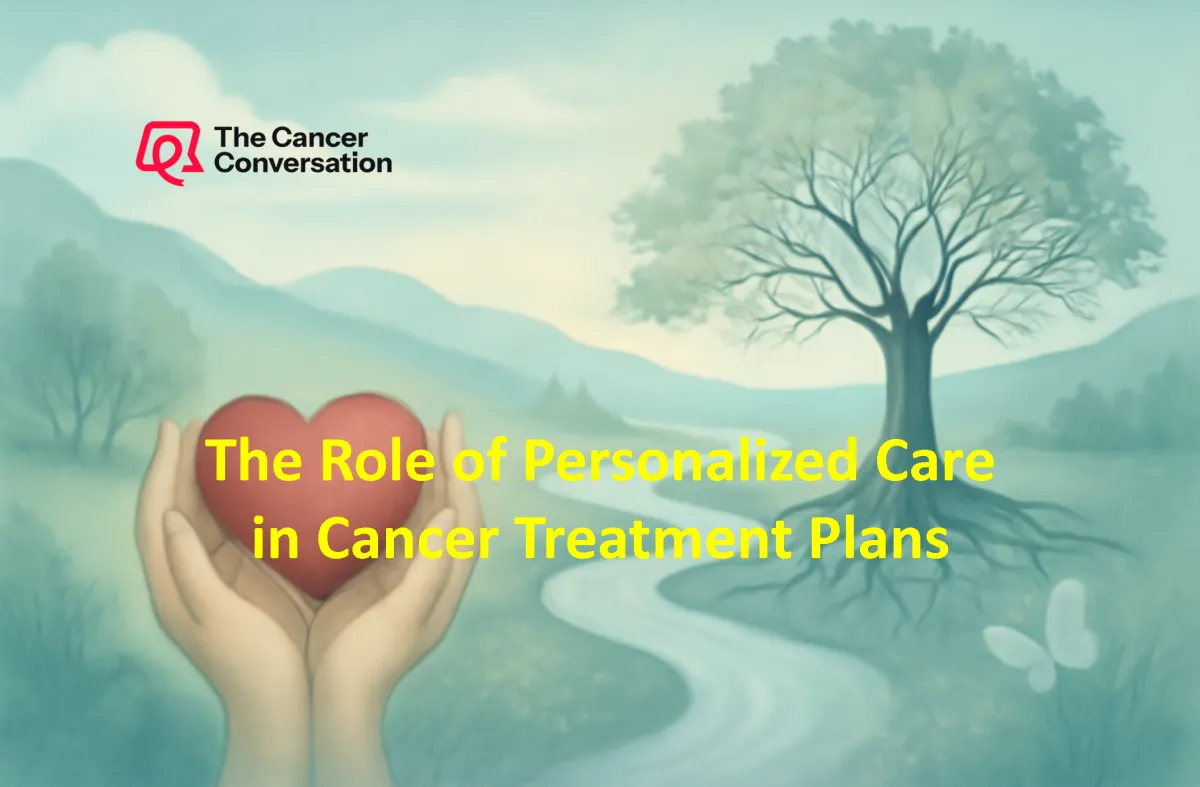
The Role of Personalized Care in Cancer Treatment Plans
Navigating a cancer diagnosis can feel overwhelming, but the power of personalized cancer care offers a beacon of hope and empowerment. By tailoring treatment plans to the unique needs of each individual, patients can experience a holistic cancer treatment approach that integrates both natural and conventional therapies. With a focus on mind-body wellness, these personalized plans support the emotional and physical well-being of patients, fostering resilience and strength. As a trusted advisor, I understand the challenges faced by patients and their loved ones, and I'm here to guide you through the benefits of integrative treatment plans. Take charge of your health and explore the opportunities for healing and growth that personalized cancer care can provide. 🌟
Understanding Personalized Cancer Care
Personalized cancer care is a crucial element in modern treatment plans, focusing on the unique needs of each patient. This approach allows for more effective and compassionate care, integrating various therapies to support the whole person, not just the disease. Here, we explore how treatments are tailored and the integration of natural and conventional therapies.
Tailoring Treatment to Individual Needs
Personalized cancer care starts with understanding the unique aspects of each patient's condition. This includes genetic factors, lifestyle, and personal preferences. By focusing on these elements, healthcare providers can create a tailored plan that addresses the specific needs of the individual.
Assessment: A thorough evaluation of medical history and personal circumstances to understand the patient's unique profile.
Customization: Developing a treatment plan that aligns with the individual's health objectives and lifestyle choices.
Monitoring: Continuous adaptation of the plan based on the patient's progress and response to treatment.
Patients benefit from a tailored approach as it increases the likelihood of treatment success while minimizing side effects. It empowers patients to be active participants in their care. This personalized attention can enhance overall satisfaction and quality of life during and after treatment.
Integrating Natural and Conventional Therapies
Integrating both natural and conventional therapies can form a more holistic cancer treatment plan. This approach combines the strengths of modern medicine with supportive natural practices, aiming for the best possible outcome for the patient.
Conventional treatments, like chemotherapy and radiation, target the cancer cells aggressively. Meanwhile, natural therapies such as nutrition, acupuncture, and herbal medicine provide additional support to manage side effects and enhance well-being.
Conventional: Chemotherapy, radiation, and surgery.
Natural: Dietary changes, yoga, meditation, and herbal supplements.
This integration is not about replacing conventional treatments but complementing them. Patients can experience fewer side effects and improved emotional and physical health. Communication between healthcare providers and patients is essential to ensure both methods work in harmony.
Mind-Body Wellness in Cancer Care
Mind-body wellness is a critical component of cancer care, focusing on nurturing both emotional and physical health. It supports resilience and strength during treatment, creating a balanced and supportive environment for healing.
Emotional Well-Being and Resilience
Emotional well-being is central to mind-body wellness, as mental health significantly impacts physical healing. Strategies to enhance emotional resilience can include counseling, support groups, and mindfulness practices.
Regular mindfulness practice can help manage stress and anxiety related to cancer. Support groups offer a safe space for sharing experiences and coping strategies, fostering a sense of community and understanding.
"The greatest weapon against stress is our ability to choose one thought over another." – William James
Emotional support is integral to treatment, promoting a positive outlook and strengthening the will to overcome challenges. Encouraging open communication with care teams and loved ones can also bolster emotional resilience.
Physical Health and Strength
Physical health is another pillar of mind-body wellness, ensuring that the body remains strong and capable during cancer treatment. Exercise, nutrition, and rest are vital components.
Exercise: Light activities like walking or yoga can enhance energy levels and improve mood.
Nutrition: A balanced diet supports the body's ability to heal and cope with treatment side effects.
Rest: Adequate sleep aids recovery and boosts immune function.
A focus on physical health supports overall recovery and helps manage treatment side effects. Patients are encouraged to work with healthcare providers to develop a plan that suits their abilities and goals, enhancing strength and vitality.
Benefits of Integrative Treatment Plans
Integrative treatment plans offer a comprehensive approach to healing, combining various therapies to address the multifaceted needs of cancer patients. These plans provide personalized support that benefits both patients and caregivers.
Comprehensive Approach to Healing
An integrative approach aims to treat the whole person, not just the disease. This comprehensive care model considers all aspects of a patient's life, promoting healing and well-being.
Holistic Care: Combines physical, emotional, and spiritual support.
Patient-Centred: Focuses on individual needs and preferences.
Collaborative: Involves a team of healthcare professionals working together.
The benefits include improved quality of life, reduced treatment side effects, and enhanced patient satisfaction. This approach empowers patients to take an active role in their health, fostering a sense of control and hope.
Personalized Support for Patients and Caregivers
Personalized support extends beyond the patient to include caregivers, who play a vital role in the treatment journey. Resources and guidance for caregivers are essential to ensure they can provide effective and compassionate care.
Education: Information on treatment options and care techniques.
Support Networks: Access to community resources and counselling services.
Self-Care: Encouragement for caregivers to maintain their well-being.
By offering comprehensive support, integrative treatment plans facilitate a healing environment for everyone involved. This support network strengthens the overall treatment experience, promoting resilience and unity. 🌈







